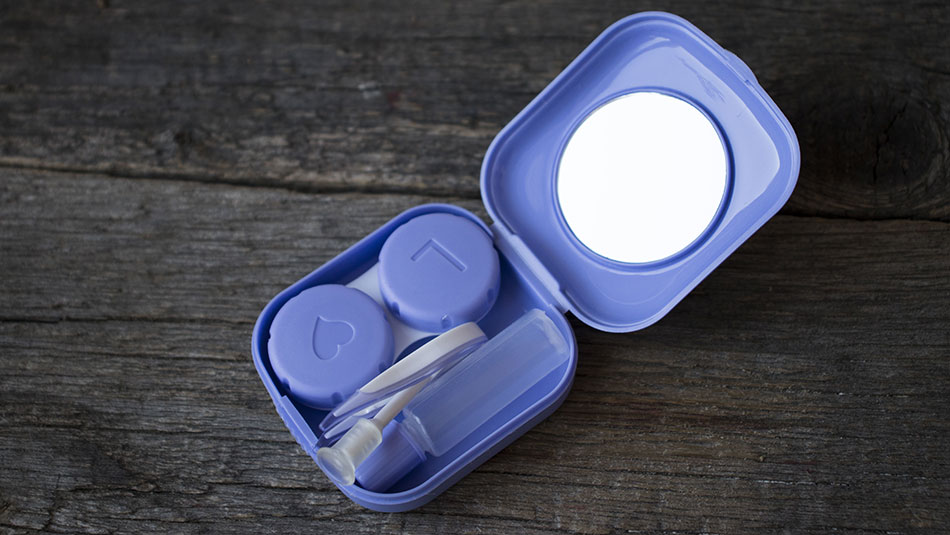One a Day, Weekly or Monthly Contacts: Which Is Better?

Contact lenses may seem like a fairly new invention in modern history. But believe it or not, the concept of contact lenses was first introduced by Leonardo da Vinci in the 1500's!
For the last 500 years, scientists have perfected contact lenses. When monthly contact lenses first hit the market, eyeglasses fell by the wayside. Today, more and more people are wearing dailies than ever before.
But that's not to say that daily contact lenses are better than 30-day contacts. Both have their benefits, and each offers something different for those who need them.
If you're wondering which type of contact lenses are for you, it's important to weigh your options. In this article, we'll talk about the pros and cons of daily, weekly, and monthly contact lenses. That way, you can decide which lenses are right for you.
Let's begin!
One a Day Contacts: The Pros and Cons

As the name suggests, these lenses are only worn for one day. You can put them in at any time of day — so long as they're removed before bedtime. The next day, you must wear a fresh pair of lenses.
Let’s explore why dailies are less hassle than other types of contact lenses.
They're Healthier
Our eyes contain calcium, protein, and lipids. These can build up on contact lenses even after several hours. That's why you have to clean traditional lenses and soak them in a solution overnight.
But with daily disposable contacts, you never have to go through the trouble to clean them. And for some people, these lenses are more comfortable than others.
Most single-use lenses contain the same materials as traditional, soft contact lenses. These materials are not only disposable--they're healthier for people with eye allergies.
Daily hydrogel soft lenses, for example, absorb more water and allow in more oxygen. These lenses are gentler on the eyes and reduce the likelihood of allergy flare-ups in the eyes.
They're More Convenient
The need to clean traditional lenses is most often the biggest inconvenience of all. If users forget their cleaning solution, it's harder to stay overnight somewhere. And who wants to lug around a bulky solution bottle anyways?
But a daily, disposable contact regimen is far simpler. Wake up, apply a fresh pair of lenses, and toss them away at nighttime. And by keeping spare pairs around, you can go anywhere with your lenses - anytime!
Because there is no clean up required, you can also save more time. That’s why one a day contact lenses are popular among teenagers who tend to be more forgetful. They are also great for the working professional who is always on the go.
Less Eco-Friendly and More Prone to Tearing
Because dailies are thinner and made of softer materials, they tear more easily. They also tend to dry out more than weekly and monthly contacts, which are usually thicker. These factors can be problematic for active people who are outdoors a lot.
Additionally, daily contact lenses are not environmentally friendly. Because they need daily replacing, more of them wind up in landfills.
Weekly or Monthly Contacts: The Pros and Cons

These contact lenses need replacing every week or month. They're thicker than one a day lenses, which makes them more durable and less prone to drying out.
Weeklies and monthlies need daily cleaning and regular replacing. Because of these factors, they can be less desirable to some people.
Still, weekly and monthly contacts offer their own benefits.
Proper Care Means Fewer Complications
It's never recommended to wear your contact lenses overnight while you sleep. But some weekly and 30-day contact lenses are FDA-approved for overnight wear. So, if you fall asleep in your weeklies or monthlies, you won't have to worry too much.
But that's not to say that those who wear weeklies or monthlies are off the hook, either. Potential complications can still arise if you don't clean them every day.
Still, taking proper care of your lenses can reduce healthcare costs in the long run.
Overwear Is Likely
With weekly or monthly lenses, you have to make sure that you order a fresh pair every week or month.
Even a couple days over the replacement schedule can lead to complications. So, unless you're a planner, it's easier to forget to replace your lenses.
Weighing the Costs

Resupplying daily contact lenses is no different from monthly contacts.
A 30-day supply of dailies consists of 60 contact lenses in total. This means that each month, you have to make sure you restock on supply. Those who wear weekly or 30-day contacts have to restock once a month, as well.
In general, daily contact lenses are more expensive upfront. Those who wear them on a daily basis will spend more in the long run. But, if you only plan to wear them once in a while they are cheaper in the long run.
Health Canada advises against wearing contacts overnight, especially if they are daily use contacts. If you wear them overnight, the likelihood of developing complications is higher. Complications from contact lenses — whether daily or monthly — are costly. But if you take proper care of your lenses and replace them when necessary, you can avoid these costs.
Weekly or monthly contacts may be cheaper upfront. But you have to take the cost of lens solution into account.
Which Contact Lenses Are Right for You?
With proper daily care, you can get a lot out of weekly or 30-day contact lenses. Weekly and monthly contacts help you save more money. They're also friendlier to the environment and are more durable for active lifestyles.
But the benefits of one a day contacts often trump those of weekly or monthly contacts. After all, they're far more convenient and don't need daily cleaning. And they even provide a gentler solution to those who suffer from eye allergies.
Consider your lifestyle and personality when you choose between the different types of contacts available. If you’re still not sure which one is right for you, consult your eye care professional to help.
